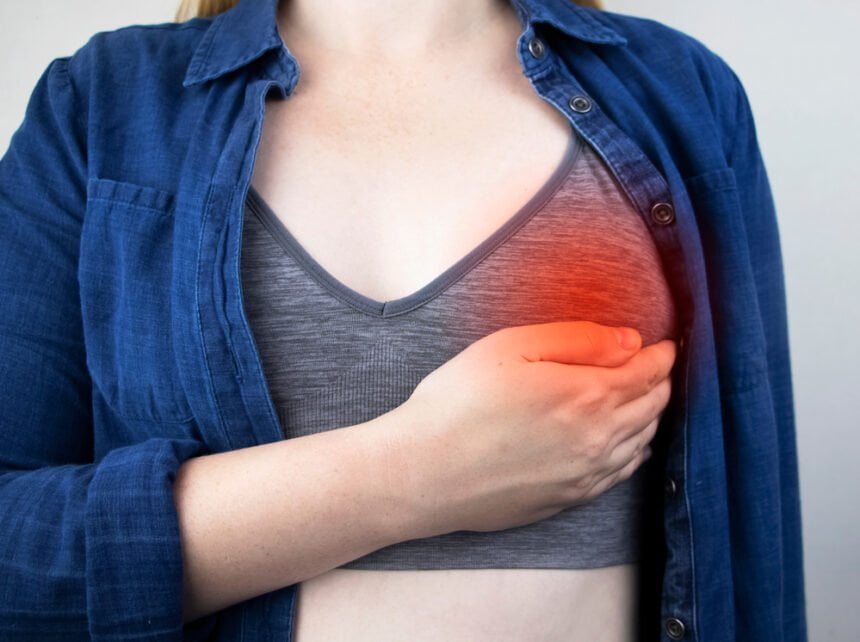We have talked about the importance of breast health in the past. Over 225,000 women are diagnosed with breast cancer every year. However, there are other breast health issues that need to be taken into consideration. These include the risk of fibroadenomas.
Fibroadenomas are non-cancerous breast tumors that affect women of all ages. Mayo Clinic has an excellent overview of this common and unpleasant health issue that women face.
They are typically harmless, but they can cause discomfort and anxiety. In this article, we’ll take a closer look at lifestyle changes and prevention strategies that can help reduce the risk of developing fibroadenomas.
Maintain a healthy weight and Limit alcohol intake
There are many important reasons to live a health lifestyle. However, you probably never realized the role that health living will play in helping to prevent the onset of problems like fibroadenomas.
Being overweight or obese can increase the risk of developing fibroadenomas. Therefore, it is important to maintain a healthy weight. This can be achieved by eating a balanced diet and engaging in regular physical activity. You can consult a registered dietitian to help you develop a healthy eating plan that is right for you.
Alcohol consumption has been linked to an increased risk of developing breast cancer, which is a risk factor for fibroadenomas. Therefore, it is recommended that women limit their alcohol intake to no more than one drink per day.
If you have an alcohol addiction, then you will want to get treatment as soon as possible. Alcoholism creates all kinds of health problems that are even worse than fibroadenomas.
Quit smoking and Breastfeed
Smoking has been associated with a higher likelihood of breast cancer, which serves as a risk factor for fibroadenomas. As such, it is recommended that women discontinue smoking to mitigate the likelihood of developing fibroadenomas and improve their chances of successful fibroadenoma treatment.
Breastfeeding has been shown to have a protective effect against breast cancer, which is a risk factor for fibroadenomas. Therefore, it is recommended that women breastfeed their babies for as long as possible.
Get regular exercise and Reduce stress
Regular exercise has been shown to have many health benefits, including reducing the risk of breast cancer. Therefore, it is recommended that women engage in regular physical activity to reduce their risk of developing fibroadenomas.
Stress can weaken the immune system, making it more difficult for the body to fight off disease. Therefore, it is important to find ways to manage stress. This can include practicing relaxation techniques such as meditation or yoga, getting enough sleep, and seeking support from friends and family.
Know your family history and Get regular mammograms
A family history of breast cancer or fibroadenomas can increase the risk of developing fibroadenomas. Therefore, it is important to know your family history and discuss it with your doctor. If you have a family history of breast cancer or fibroadenomas, your doctor may recommend more frequent breast exams or other screening tests.
Regular mammograms can help detect breast cancer and fibroadenomas early, when they are most treatable. Therefore, it is recommended that women begin getting mammograms at age 40 or earlier if they have a family history of breast cancer.
Conclusion
In conclusion, while fibroadenomas are typically benign, they can cause anxiety and discomfort. Fortunately, there are lifestyle changes and prevention strategies that can help reduce the risk of developing fibroadenomas. By maintaining a healthy weight, limiting alcohol intake, quitting smoking, breastfeeding, getting regular exercise, reducing stress, knowing your family history, and getting regular mammograms, you can help protect yourself against fibroadenomas and other breast conditions. Remember to consult your doctor if you have any concerns about your breast health.

